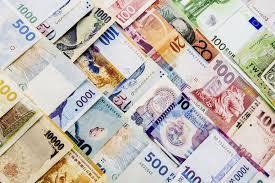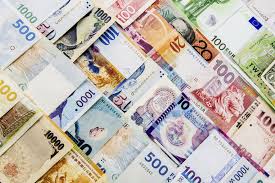
Economists and strategists are of the view that the G10 currency market is driven solely by political events.
This was the view of Dominic Bunning, FX Strategist at HSBC. Whereas on numerous previous occasions, a wide range of events had impacted the performance of G10 currency pairs, now this impact is only being cause by political decision and the polity, he said while talking on a television program.
"In G10, everything is driven by politics. We used to think about economics and cyclical stories and structural stories and balance of payments etc but now all we care about is politics," Bunning said.
Trading decisions are more and more being made on the basis of political considerations and he explained that if you have a strong political view then you make trading decisions based on the views.
"If you think the euro zone is going to break up then by all means sell the euro,” Bunning said, while warning that he doesn't have a strong view on euro.
However he is likely continue to remain weak as far as his dealings with the sterling are concerned. "We still think there is a strong weakness in sterling even though it is relatively lower because the political outlook in the UK is very challenging."
Primarily and perhaps only due to political uncertainties in their respective countries or on a global level, since the start of the year, a number of these currencies have seen a lot of volatility. The U.S. presidential elections and the surprise win of President elect Donald Trump and the U.K.'s vote to leave the European Union were the biggest political events this year that have impacted the currencies. While the euro has been on its worst losing streak since the currency arrived in 1999, the sterling is down more than 16 percent since the Brexit vote on June 23.
But based on the growing perception that the economic policies of U.S. President-elect Donald Trump will push up consumer prices, the dollar, in the meanwhile, has been seeing some strength and has risen to a 14-year high against a basket of currencies. However HSBC's Bunning warned that it is not great for emerging market currencies even as traders are growing more bullish on the dollar.
"You need to be selective in terms of your currency choices. I don't think it's a dollar bull run against everything but I do think if you look at the outlook for emerging market currencies, particularly the high-yield currencies at the moment, it is very hard to have a positive currency view," he said.
Specifically after Federal Reserve chief Janet Yellen said a rate hike could be "relatively soon", soaring dollar has hit assets across emerging markets.
(Source:www.cnbc.com)
This was the view of Dominic Bunning, FX Strategist at HSBC. Whereas on numerous previous occasions, a wide range of events had impacted the performance of G10 currency pairs, now this impact is only being cause by political decision and the polity, he said while talking on a television program.
"In G10, everything is driven by politics. We used to think about economics and cyclical stories and structural stories and balance of payments etc but now all we care about is politics," Bunning said.
Trading decisions are more and more being made on the basis of political considerations and he explained that if you have a strong political view then you make trading decisions based on the views.
"If you think the euro zone is going to break up then by all means sell the euro,” Bunning said, while warning that he doesn't have a strong view on euro.
However he is likely continue to remain weak as far as his dealings with the sterling are concerned. "We still think there is a strong weakness in sterling even though it is relatively lower because the political outlook in the UK is very challenging."
Primarily and perhaps only due to political uncertainties in their respective countries or on a global level, since the start of the year, a number of these currencies have seen a lot of volatility. The U.S. presidential elections and the surprise win of President elect Donald Trump and the U.K.'s vote to leave the European Union were the biggest political events this year that have impacted the currencies. While the euro has been on its worst losing streak since the currency arrived in 1999, the sterling is down more than 16 percent since the Brexit vote on June 23.
But based on the growing perception that the economic policies of U.S. President-elect Donald Trump will push up consumer prices, the dollar, in the meanwhile, has been seeing some strength and has risen to a 14-year high against a basket of currencies. However HSBC's Bunning warned that it is not great for emerging market currencies even as traders are growing more bullish on the dollar.
"You need to be selective in terms of your currency choices. I don't think it's a dollar bull run against everything but I do think if you look at the outlook for emerging market currencies, particularly the high-yield currencies at the moment, it is very hard to have a positive currency view," he said.
Specifically after Federal Reserve chief Janet Yellen said a rate hike could be "relatively soon", soaring dollar has hit assets across emerging markets.
(Source:www.cnbc.com)





